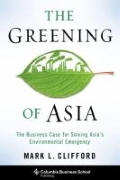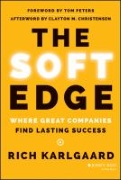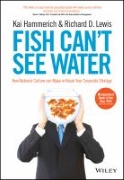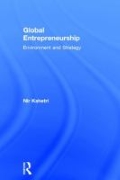Book Review: Essential Titles From Choice
A vital tool for developing library collections at 4000 universities is Choice magazine’s book reviews. For books selected for review, concise critical evaluations by teaching faculty members or subject experts are followed by purchase recommendations. Only a fraction of the books are evaluated as “Essential,” the highest rating. Five recent Ford Library acquisitions earned the rare designation, “Essential.”
 The Practical Drucker by William A Cohen.
The Practical Drucker by William A Cohen.
Peter Drucker, “The Father of Modern Management,” wrote 39 books and over 1000 journal articles. In The Practical Drucker, former student William A. Cohen synthesizes the enormous body of Drucker’s work, summarizing his observations about people and their work organizations. Cohen describes 40 key concepts for solving real-world problems, covering topics such as leadership, ethical behavior, performance measurement, marketing and innovation. Examples from Drucker’s day-to-day work with leaders in complex organizations provide proven practice and illustrate solutions to problems.
 The Greening of Asia by Mark L. Clifford.
The Greening of Asia by Mark L. Clifford.
Asia business journalist Mark Clifford explains that exponential economic growth in Asia is causing a crisis in environmental quality. He proposes a new model of economic development that uses market forces to transition to a greener Asia, with government offering incentives to business to find efficient solutions to challenges in sustainability. Clifford showcases leading Asian companies that are changing the global landscape and overtaking Western competitors in solar and wind power, environmentally powered cars, green buildings, water treatment technologies and sustainable agriculture.
 The Soft Edge by Rich Karlgaard.
The Soft Edge by Rich Karlgaard.
Forbes publisher and entrepreneur Rich Karlgaard presents his model for how companies achieve long-lasting success — a triangle composed of a strategic base (market, customers, competitors, substitutes, disrupters); the hard edge (speed, cost, supply chain, logistics capital efficiency); and the soft edge (trust, smarts, teams, taste and story). Karlgaard focuses on the soft edge, sharing observations and anecdotes about industry leaders, companies that have thrived for decades and have found the right balance between the data of the hard edge and the skills of the soft edge.
 Fish Can’t See Water by Kai Hammerich and Richard D. Lewis.
Fish Can’t See Water by Kai Hammerich and Richard D. Lewis.
At the heart of the culture of any business organization is the national culture, which has a powerful yet invisible impact on the company’s success. Yet management is often blind to the culture in their own company and their home country. Two experts on culture and communications, Kai Hammerich and Richard Lewis, present their models (the Cultural Dynamic Model and the Lewis Model) as a framework for understanding how national culture effects strategy execution within organizations. Concludes with recommended actions to enhance competitiveness in a global environment.
 Global Entrepreneurship by Nir Kshetri
Global Entrepreneurship by Nir Kshetri
This scholarly work by Nir Kshetri, faculty member at the UNC Greensboro Bryan School of Management, examines entrepreneurial ecosystems worldwide, including key elements such as values and culture, the regulatory environment and access to markets, financing and technology. Geographic areas covered include OECD economies, post-socialist countries in Eastern Europe, the Gulf states, Africa, China and India.
© Meg Trauner & Ford Library – Fuqua School of Business.
All rights reserved.